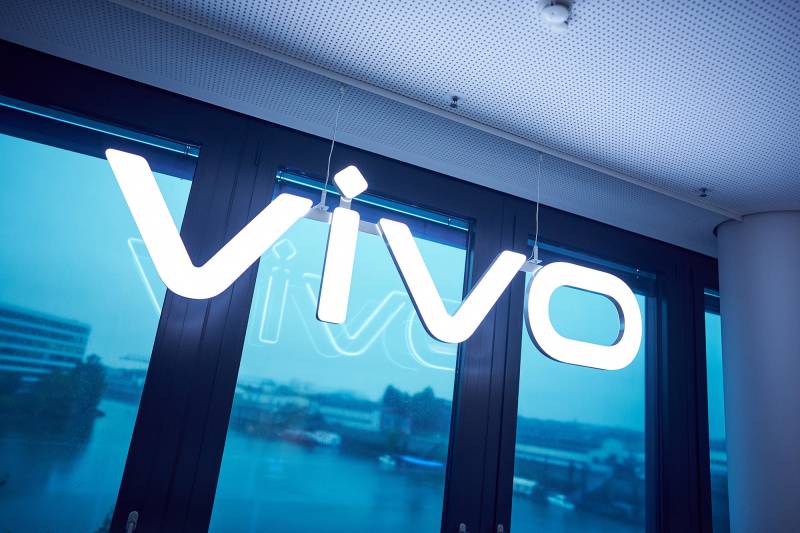After much thought and planning, you’ve decided to leave your 9-to-5 job and work for yourself.
If that involves working on Main Street and opening your retail store, you’ll need to put in a lot of work. You’ll be ready to look for financing to get your store up and running once you’ve produced a business plan and determined whether or not to go into business with a partner.
Finding cash in Oregon is one of the most challenging aspects of starting a new company. It’s critical to keep in mind that you’re not alone. At Oregon Payday Champion you have several options for obtaining the funds you require.
In the United States, the costs of opening a brick-and-mortar store vary greatly.
Costs might range from a few thousand dollars to over a hundred thousand dollars, depending on the region, industry, and business plan.
Retail inventory financing
You can purchase a company’s inventory with the help of retail inventory finance.
To secure a short-term loan or a line of credit, a company uses existing inventory or products purchased using retail inventory finance capital.
There are two types of inventory finance available:
- Inventory loan: An inventory loan is a standard term loan in which you receive a lump payment and repay it over time with interest. This loan form is best for a significant purchase made only once or twice a year.
- Inventory line of credit: If you require money regularly, a line of credit allows you to borrow as much as you need and only pay back what you’ve borrowed.
The benefit of an inventory line of credit is that once you’ve paid back what you borrowed, you’ll immediately be able to borrow the maximum amount approved again (as long as your account is in good standing).
Which businesses make use of retail inventory financing?
Retail, manufacturing, wholesale, and seasonal firms can benefit from inventory financing.
These industries rely on physical products to make a profit, and sales might fluctuate based on the time of year, demand, and the number of SKUs available. You can use inventory financing in the following ways:
- Getting ready for the busy season by stockpiling inventory
- Purchasing additional products to meet increased demand (marketing campaign, sale, partnership, etc.)
- Introducing a new product or line of products
- Bringing old stock up to date
- Keeping a steady flow of funds
What are the advantages of taking out a retail business loan?
The fundamental truth is that retail business loans assist you in maintaining consistency in your inventory and strengthen your B2C relationship. It can also benefit your business in the ways listed below.
- Lower financial risk: You secure the loan or line of credit with existing or future merchandise rather than business or personal assets.
- Meeting client demand: Even if your products are in great demand, you’ll always have inventory.
- No credit check: Do you have a bad credit score or none? Lenders can utilize inventory as collateral, eliminating the requirement for a thorough examination of your credit history.
- Quick approval, reduced paperwork: Inventory financing loans are frequently approved faster than standard loans, with most approvals taking less than two weeks.
Additional retail business loan possibilities
There are various choices available to you to secure money other than retail inventory loans.
Before committing to a long-term company loan, properly examine your choices, from leveraging your business credit to giving personal collateral.
Loans from the Small Business Administration (SBA)
This is the ideal option for most entrepreneurs who are beginning a firm from the ground up.
You may be eligible for various loans, but there are certain limitations.
You may easily apply for one at your local bank office, and there are a few conditions that may be helpful in certain situations.
7(a) loans
The eligibility requirements for this standard business loan are simple to meet. Before applying for this loan, you must show that you have tried to find alternate sources of finance and that you do not owe the US government any money. Certain sorts of enterprises, such as life insurance companies, casinos, private clubs that demand membership, and religious organizations, are exempt from receiving help.
Within 36 hours, you should receive a response to your loan application. You may have to pay more interest if your loan is less (but you may be able to negotiate this with your lender).
If you borrow more than $25,000, a lender may demand you to put up collateral, such as your home. If you qualify, a 7(a) small company loan can provide you with up to $400,000.
Microloan
You can apply for an SBA microloan if your company doesn’t require more than $60,000 in funding. According to the Small Business Administration, the average microloan is $10,000, making it a viable option for people to begin a home-based business that doesn’t require a large sum of money.
A microloan could also be a viable option for established businesses that require additional working capital for payroll, inventory, equipment, or maintenance. Interest rates are expected to be between 7% and 12%, although they will vary depending on your lender and credit. The advantage of these loans is that nonprofits frequently offer them, so you may be able to quickly acquire one from an organization that is a good fit for your business.
Loans for real estate
Most businesses begin with leased space, but you may be eligible for this loan if you need to buy land or an existing structure and don’t have the cash. This money is only for the property. Therefore you can’t use it for other purposes like working capital or debt repayment.
If you’re seeking a large loan, you might need to meet certain requirements. If your company creates jobs, for example, you might receive up to $70,000 per job created, up to a total of $4.8 million.
Personal loans
Those with good credit (a credit score of at least 650) may be eligible for a personal loan to assist in funding a business. You won’t be able to borrow the entire amount you need; a personal loan will cost you between $15,000 and $45,000. Although most businesses require around $25,000 to start, a franchise may demand far more capital or assets. If you want to open a McDonald’s, you’ll need at least $800,000 in liquid assets. Personal loan interest rates vary widely, usually determined by your credit score. The lower your interest rate, the better your credit; rates typically range from 5% to 20%.
Options for those with bad or no credit
One of the most recent financing choices is an alternative loan, which is a loan that a bank does not provide. It may be tough to secure the cash you need to launch your business if your credit score is less than 600. Banks will most likely view you as a high-risk customer, and you’ll be turned down or given a lot smaller loan than you require.
The most apparent advantage of an alternative loan is that you can acquire the money you need – up to $1 million in some situations. Another benefit is that many lenders do not need you to put up any collateral. Many of these alternative lenders only lend to businesses that are already up and running and generate a particular monthly revenue.
Short payback terms, upfront fees, and high-interest rates are standard features of unsecured small company loans from alternative lenders (though most are fixed). Any alternative loan’s fine print should be carefully read. This form of borrowing is frequently equated to a company payday loan.
Fundraising
Many artists and entrepreneurs use crowdfunding to raise funds, and it’s also a feasible solution for small enterprises in need of operating capital or startup capital. Asking for the correct total amount is one of the keys to collecting money from small investors. If your estimates are too high, potential investors may be scared away, and you may not be able to reach your target amount. To obtain the funds, several crowdfunding services require that you reach your objective.
The other aspect of crowdfunding is to offer tempting incentives. TINSTAAFL, or “there is no such thing as a free lunch,” is a phrase you’ve probably heard before. A thank-you note is unlikely to motivate many people to help you achieve your goal. You can provide several tiers of rewards if you’re making a $100 dress and need funds to get the gowns created and sent.
Those who donate $100, for example, may receive the dress as well as a free skirt or purse that you’ve also designed. You might also offer a percentage off future purchases as an alternative.
Taking out a home equity loan
Homeowners have a distinct edge over non-homeowners: equity. This could be your ticket to obtaining a significant loan to assist you in starting a new business. You may be eligible to borrow up to 80% of your home’s equity if you have at least 20% equity in your house and good credit.
These loans often have lower interest rates (between 3% and 8%), but you risk losing your home if you default on payments and cannot repay the loan. It’s a risky move, but it could work for you, especially if you own multiple homes.
Friends and family
When it comes to delicate situations, asking for family or friends might be difficult. Some people believe that you should never mix business and family. Holiday parties may be difficult if things go wrong with your business and you can’t pay back a debt.
If you have relatives or friends that want to help you with your business, the best thing you can do is create a legally enforceable contract. Your family and friends must understand that they’re acting as investors and that if the firm fails, their money might be lost permanently; that’s the risk they’re taking by investing.
On the other hand, a loan is a little different, and you may apply for one through an app that allows your lender to select the interest rate and repayment terms. Then you pay through the app, which deposits monies into the lender’s or bank’s account.
Bank cards
Putting company spending on credit cards is common, and depending on the circumstances, it can be advantageous or harmful. Many credit cards now have reward schemes that allow you to earn cashback or points for using your card. You can use the points you earn to pay for plane tickets to a convention or a car rental, or you can convert them to cash to spend on business-related products you’d buy anyway.
Although many credit cards offer introductory rates of 0% APR for the first three months (or year) of account ownership, this will convert to interest rates ranging from 10% to 24%, among the highest available.
The good thing is that you only pay interest on the credit you use, so if you can pay off your bill each month, you’ll be fine and will be helping to raise your credit score.
Angel investors
This may be the most difficult method of raising funds for your company. Angel investors are few and far between, and they’re picky about where they put their money. Look for angel investors in your field; they’re usually found in the tech and science sectors.
An angel investor is typically a successful businessperson who wants to help others thrive as well. They may also want a say in what happens with your company, so you may have to relinquish some control. It’s not a loan because a private investor wants to profit from your success. It’s as if they’re investing in your company by purchasing stock and expecting a profit.
Conclusion
It’s critical to choose an approach that works for you to raise finances to launch your business.
If you have a good credit score and equity in your home, a loan might be a good option, but those who are beginning from scratch might be better off putting up an internet fundraising platform.
Look for low-interest rates (fixed is better than variable if you’re not sure which way the economy is going) and flexible payback terms when choosing a loan. Make sure you understand what you’re signing up for, especially if your firm fails. If you’re putting your property or savings up as collateral, you should always have a back-up plan. Bankruptcy might help you get out of a tight spot, but it can take years to restore your credit and get approved for a loan again.




:quality(70)/cloudfront-eu-central-1.images.arcpublishing.com/businessoffashion/IYC3AJUUBJH6JMEAEAGJLWHUSY.jpeg)